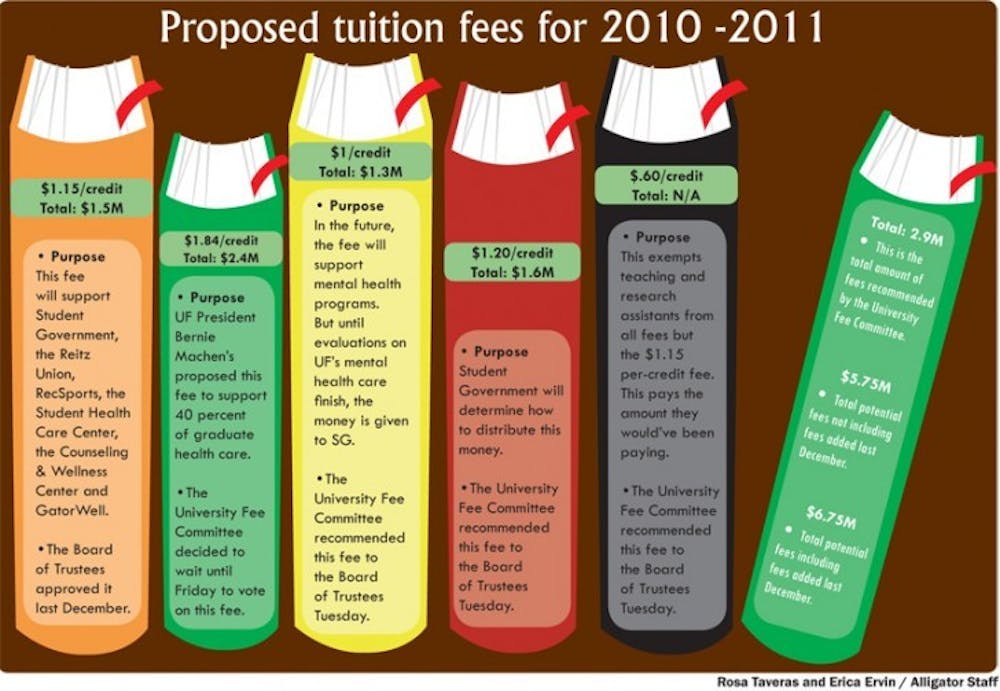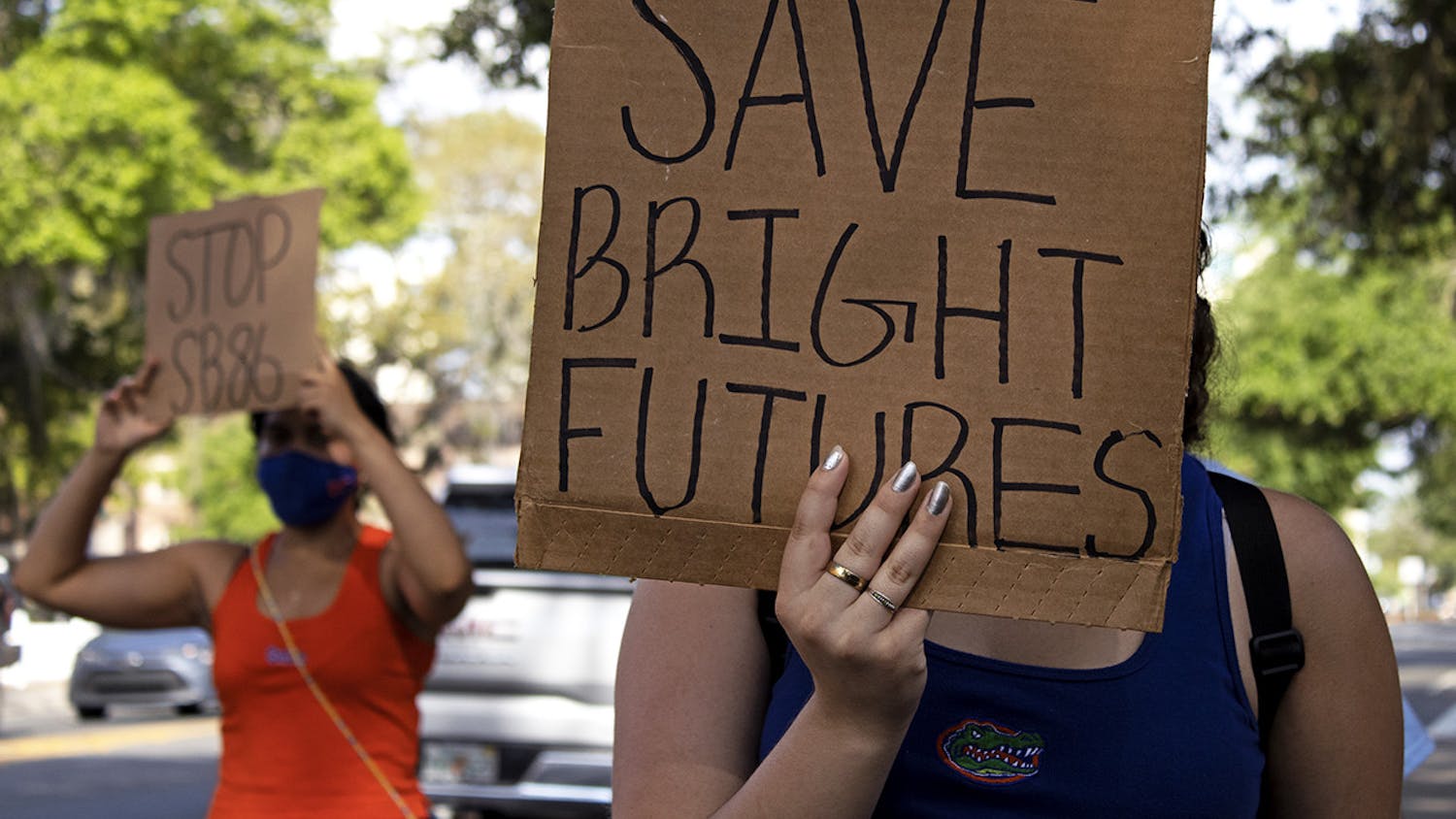Student fees are rising – again.
After Gov. Charlie Crist signed a bill on Friday giving universities a one-time opportunity to raise student fees higher than normal, UF’s fees could rise by $5.79 per credit hour .
Usually, UF can only raise fees by 5 percent each year, which is $1.15 per credit hour. However, the University Fee Committee submitted recommendations to the UF Board of Trustees for additional fees Tuesday.
If the committee and the board approve all of the fees, it will cost students taking 15 credit hours an extra $87 each semester.
The UF committee unanimously supported three of the four student fees proposed by UF President Bernie Machen on Tuesday. The committee must submit all decision to the Board of Trustees, UF's highest governing body, by next week.
The Activity and Service Fee funds Student Government by charging students $1.20 per credit. Another fee approved will charge students $1 per credit to fund mental health care once UF completes evaluations for the services. The last fee approved is 60 cents per credit in order to exempt research and teaching assistants from paying anything greater than the $1.15 per-credit fee that passed in December.
Student members of the committee, who represent the Student Body, did not support Machen’s plan for undergraduates to pay for graduate students’ health insurance.
Machen proposed a $1.84 per-credit fee to pay for about 40 percent of graduate students’ health care.
Whether or not the additional fee goes through, teaching assistants and research assistants are exempt from all new fees.
UF Student Body President Ashton Charles, who is a graduate student, said graduate students’ health care is important, but undergraduates should not be forced to pay for it.
The Student Senate budget appropriations chair, T.J. Villamil, said that the per-credit fee will ultimately help undergraduates because it will bring better teachers’ assistants and research assistants to the university, but acknowledged that the fee is a substantial cost for unprepared undergraduates.
“It’s a lot for undergraduates to front,” he said.
During the meeting, Machen pointed to the success of the current graduate student health program, which has been in existence for four years.
“It’s a significant recruiting tool,” Machen said.
More than 4,500 graduate students use the health insurance, he said. Individual graduate student coverage is free, he said, but graduate students do have to pay for family coverage. But Charles said
harging undergraduates for a program that only benefits graduate students could be dangerous during a recession.
“I definitely like where the needs are being addressed,” she said. “My only problem is I’m a little hesitant to raise it to the full amount entirely. It’s a tough economic time.”
Charles and Machen made proposals and counter-proposals on Tuesday for how the fee should be used, but they were not able to come to an agreement.
“You need to wrassle with this,” Machen told the committee.
The committee delayed the decision on the graduate health care fee until Friday.
Charles stressed the need for the committee to continue researching where the funding can go. Alternative sources of funding for graduate health care should be sought, she said.
“We owe it to the entire Student Body,” Charles said in a later interview. “If there’s another area where those needs can be addressed, we need to find it.”
The current fee system is complicated, said David Kratzer, chair of the committee.
The three fees recommended at the committee meeting on Tuesday add an extra $2.80 per-credit hike.
The $3.95 per-credit in approved fees will collect about $4.5 million for SG and student services.
If the full $5.79 per credit is charged, then the university will collect $6.75 million in fees.
The committee will meet Friday to determine how to use the remaining $1.84 per-credit fee.
Editor's Note: This version corrects the three fees recommended at Tuesday's committee meeting to add an extra $2.80 per-credit hike, and if the full $5.79 per credit is charged, then the university will collect $6.75 million in fees.






